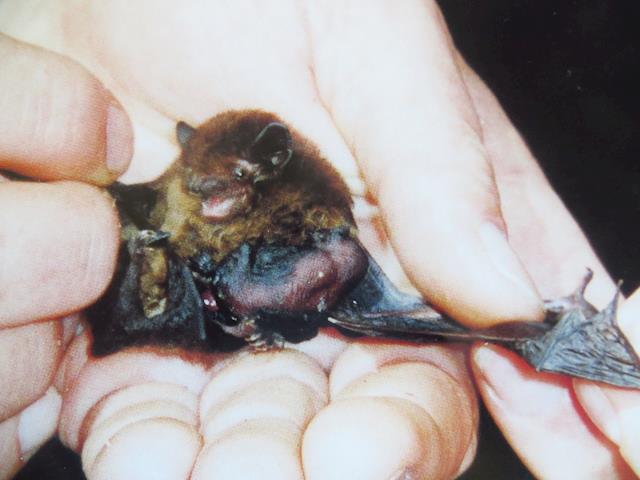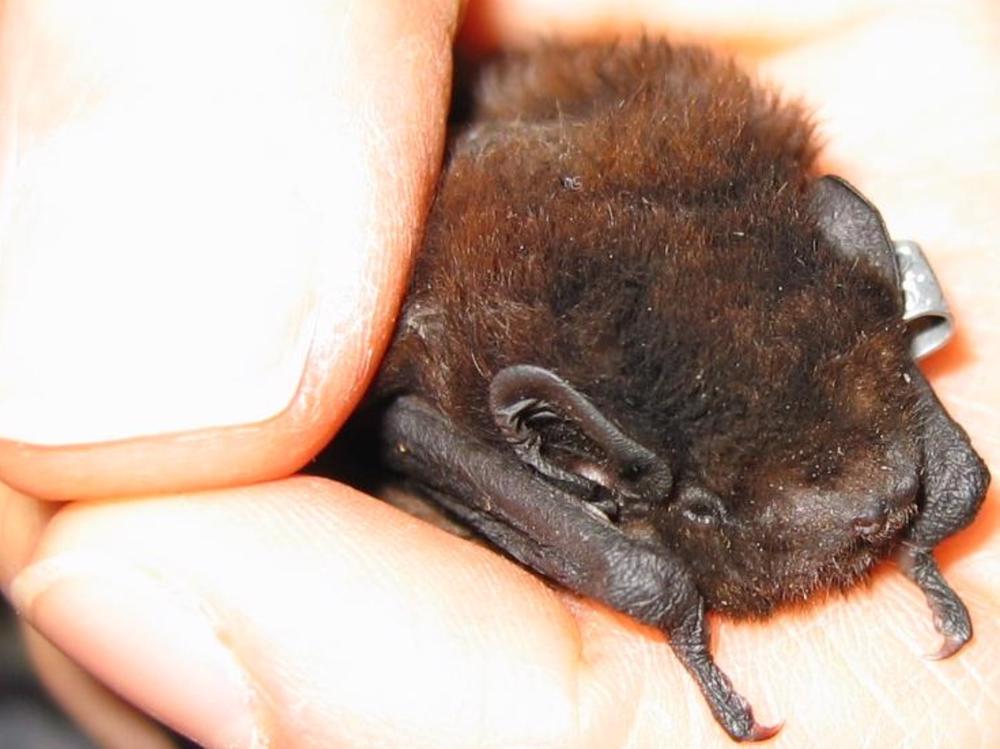Help us keep the bats in Hamilton!
We are going to Court to protect the habitat of endangered long-tailed bats from urbanisation.
Waikato
Can you help us with legal expenses to protect one of Hamilton's best-kept secrets - its population of extremely rare long-tailed bats (pekapeka)? We are going to court to protect this taonga, and it's expensive.
Our native long-tailed bats are at the same level of extinction risk as the kakapo! Hamilton is one of the few urban areas lucky enough to have any bats left. About 60 use the southern fringe of Hamilton, mostly flying at night between dark, bushy gullies, and sleeping during the day in huge old trees.
We are very worried that a large new subdivision at Peacocke will spell the end of this bat population. It's in a critical location for the bats. Therefore we are reluctantly taking part in the Environment Court hearing regarding conditions relating to the subdivision, starting on 31st August. Our intent is not to stop the subdivision, but to make it as bat-friendly as possible. The best way to do this is to protect with wide bush-clad margins the areas that the bats use to fly and feed.
This is a test case for future developments in NZ where urban development clashes with the habitat of our precious native species.
As an independent environment group, we are not swayed by profits or political pressures. Our voice has been powerful so far: Along with the Department of Conservation through the Council resource consent process, we have already had a significant impact on the bat-friendliness of this subdivision. To ensure these gains are maintained it is vital that we continue to advocate for the bats in the Environment Court. Otherwise, important protections achieved may be lost.
RESI members have volunteered time and resources to preparing for the hearing, but in order to have a strong case it has been necessary to engage a lawyer, planner and ecologists at considerable but unavoidable cost. Any contribution you can make, large or small, would be hugely appreciated and will mean we have the best chance of securing the future of Hamilton’s lovable flying mammals.
These bats eat insects, including mosquitoes! You can see and hear them by booking a tour with the Waikato Museum through Hammond bush (although be aware that these excellent tours sell out fast). They were once so common in NZ that early settlers described seeing them in their “scores”, “hundreds” and “thousands”. Let's do our very best for the few that remain.
About us
We are a small community group in Riverlea, Hamilton, that works to protect our local environment - especially our local Hammond bush, which is Hamilton's most biodiverse bush remnant and home to the rare long-tailed bat.
Use of funds
Funds will be used to help pay our lawyer, planner and ecologists. Any surplus will be used to repay our loan for the legal costs we incurred during a 2019 Council hearing for the same subdivision.
Other page links
Latest update

The Environment Court has released its interim decision 12 November 2020
The Environment Court has now released its interim decision on Amberfield. We are very pleased with it, and relieved for the bats.
First, a reminder that our main aim was that the subdivision be designed to allow our local bats to continue to use Hammond Park with minimal disturbance, and to use Amberfield to forage and fly to their feeding grounds and roosting sites further west. The long-tailed bat has a nationally critical status and is approaching extinction, so safe and efficient access to feeding grounds is essential.
One of our main objectives was to defend a delay in building houses opposite Hammond Park until the riverside reserve vegetation has grown sufficiently tall to screen the river margin from light resulting from the development. This was required by the original decision that came out of the city council resource consent hearing, but both Weston Lea Ltd (the developers of the land) and Hamilton City Council opposed this delay.
The Court ruled on Friday that there must be a substantial screening in place before houses can be built.
We also sought that an existing shelterbelt that emerges from the river margin and crosses the site, and is used as a commuting corridor by the bats, be “buffered” against urbanisation by a strip of land on both sides, rather than having housing lots extend right up to the shelterbelt trees on one side, as sought by the developers and the council. The Court has ruled that there be a 15 metre buffer strip on that side. There is already a reserve proposed for the other side.
We had sought a 50 metre strip of land, so 15 metres is less than we were advised is optimal, but still an improvement.
We sought also that a road running through the shelterbelt very close to the river was either removed or narrowed. (There are to be two other roads that run largely parallel to it.) This is because road construction would require tree removal and thus break up the bats' commuting corridor, which is a particular problem so close to the river’s edge. Weston Lea and the council opposed this change.
The Court ruled that the road must be a very narrow low-speed ‘shared space’ for slow drivers, cyclists and pedestrians, which will require the removal of perhaps only one tree. Furthermore, the neighbouring road must be narrowed and have a ‘gantry’ over it (a kind of bat bridge) to maximise the chances that the bats will keep flying along the shelterbelt.
The Court noted that the short low-speed road section is likely to be beneficial not only for the bats but for residents and visitors, and attractive for walkers.
We also sought that Weston Lea pay a bond so that if they did not meet their environmental obligations the cost did not fall to ratepayers. This was not upheld by the Court.
Finally, we supported the Forest and Bird Society, who sought to have a ban on cats for Amberfield. Cats are known predators of bats, and the Court noted that to allow more than 800 houses on the site, thus inevitably bringing in many cats with their owners, is inconsistent with bat safety. The Court agreed: “the logic supporting a cat ban in this area is almost irresistible …”.
Thus the conditions RESI sought for the subdivision have been largely supported by the Court. The decision is an interim one and requires Weston Lea to draft conditions that conform with the decision’s requirements. We look forward to working positively with Weston Lea, Hamilton City Council and the other parties (Forest and Bird; Department of Conservation) to achieve this.
Importantly, while a few housing lots will be removed as a result of this decision, there is ample opportunity for slightly higher density housing elsewhere on the site to more than compensate for this loss. High-quality, higher-density housing paired with green space to be enjoyed by the residents and to restore biodiversity is thought by many urban designers to be the future approach for housing people while addressing the biodiversity crisis and other urgent challenges. Significant green spaces are incorporated into Amberfield as per Hamilton City Council’s Structure Plan for the area, and as advocated by RESI’s early submissions to the consent process.
THANK YOU to everyone who supported us! We needed it and appreciate it.
(The photo is of a long-tailed bat giving birth to a baby who was nearly a third the size of her. Image by Tony McCann.)
Latest donations


Hi Katherine, huge thanks for this. Wow! Thanks for being a defender of nature.

Thanks so much for your generosity, Caitlin, and for helping the bats.

Thanks for joining team bat, much appreciated!

Thank you very much - great to have you on our team and helping out.
Who's involved?
Page Q&A
Ask a question hereAny concerns?
Report this pageThank the donor
Your message will be displayed on the page and emailed to the donor.
Your new message will also be emailed to the donor.
Saving a blank entry will delete the current comment.

